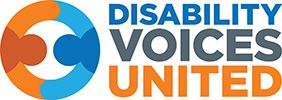Coronavirus can be confusing and stressful for people with intellectual and developmental disabilities. You must presume competence that they will understand that there is a big problem and they need to help protect themselves. Hiding your concerns from them may produce increased anxiety as they are perceptive enough to feel their parents’ stress and will inevitably be significantly impacted by the changes in their routine.
Families need to get prepared immediately as the world is changing dramatically to respond to the crisis. It is critical that families understand how to protect their loved ones and themselves. Being informed and making clear plans will be the key to keeping your family safe. Here are some resources that may be helpful:
Disability Voices United and the California State Council on Developmental Disabilities have developed tip sheets to support your loved one on vaccination day. Find the tip sheets on this page.
The CDC has a list of recommendations to “Get Your Home Ready.”
California Department of Public Health has issued guidance on public gatherings and social distancing.
The State Council on Developmental Disabilities has a FAQ on coronavirus for the families of people with developmental disabilities.
American Academy of Pediatrics has recommendations for protecting children from Coronavirus.
The WITH Foundation has an interview with Dr. Clarissa Kripke of the San Francisco Office of Developmental Primary Care about COVID-19 and people with disabilities.
The California Health and Human Services Agency has developed a Personal Emergency Plan form where you can provide emergency contact, health, and medication information.
A Day in Our Shoes website developed a Disability Quarantine Printable Checklist.
The Down Syndrome Center of Western Pennsylvania created a podcast with a doctor about the risks from Coronavirus for people with Down syndrome.
This is a good article explaining physical distancing versus social distancing.
Another article explains how social distancing can create problems with mental health.
Disability Voices United has developed a video on making a quick fabric mask out of a bandanna and hair ties:
The Health and Human Services agency of the State of California has issued a letter stating people with physical, intellectual, and developmental disabilities can bring 1 supporter in to the hospital during this time period:
The presence of a support person is essential to patients with physical, intellectual, and/or developmental disabilities and patients with cognitive impairments. CDPH recommends that one support person be allowed to be present with the patient when medically necessary.
For hospitalized patients, especially with prolonged hospitalization, the patient or family/patient representative may designate two support people, but only one support person may be present at a time.
All support persons must stay in the room and be asymptomatic for COVID-19 and not be a suspected or recently confirmed case. Support persons may be screened prior to entering the clinical areas. Support persons must comply with any health facility instructions on personal protective equipment.”
Health and Human Services All–Facilities Letter
The State of New York has issued guidance allowing people with intellectual and/or developmental disabilities to have one support person at a time in the emergency room or hospital room with them.
If you live in Los Angeles and are having trouble paying rent, have lost your job, or if you’re not safe, LA Represents wants to help. They are working to connect Los Angelenos with free legal assistance.
